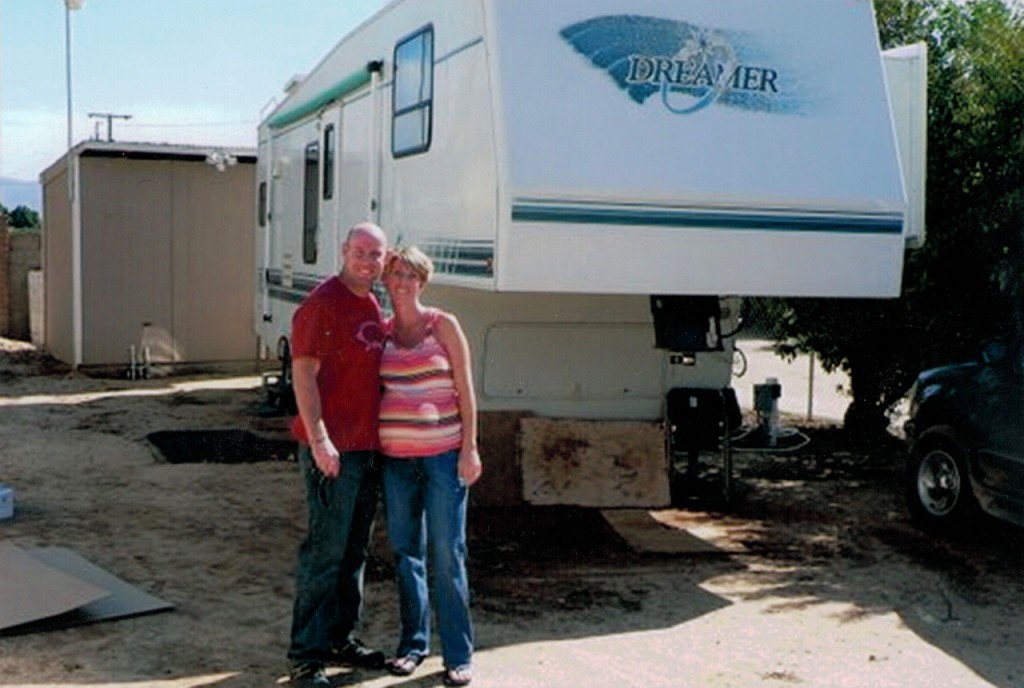
Corner Office Syndrome as a Boss: When it’s Always Lonely at the Top of the Business or Ministry
A few years ago I reported the results of a missionary survey I did and was surprised by their answers. (Especially when they matched mine.)
With global loneliness at an all-time high, I thought I’d take a closer look into the phenomenon where some people might not look.
The old cliché, “It’s lonely at the top” rings loud and true… 92% of missionaries I interviewed said yes to this question:
Do you ever suffer from Corner Office Syndrome? (Knowing a ton of people but not having any real friends.)

“Totally. I have lots of friends on Facebook, but nobody checks on me; I always have to reach out. It’s hard to converse about life since my life looks so different now.”
“Yes. I often feel like I don’t fit anywhere.”
“Didn’t even know it had a name, but it’s something I’ve struggled with ever since being on the field.”
“Yes! The highest price I paid in becoming a missionary was in relationships. That surprised me.”
“Our ministry houses 1,000 short-term mission trip visitors annually. That’s 1,000 times you meet someone, answer the same questions, hear the same jokes, and tell the same story. It’s exhausting and lonely sometimes. I almost feel like I live in a petting zoo.”
———
Since Corner Office Syndrome does not discriminate, plenty of other people can fall into this category too: pastors, pastors’ wives, CEOs, principals, founders, celebrities, etc.
My husband and I dealt with this over the years, but in two different directions. The first came when Americans in our ministry said they were intimidated by me the first time we met. I cringed at the idea, so I asked, “Why? What did I do to make you feel that way?”
“Nothing—it’s just because you were the director’s wife.”
Felt pretty unfair to me. They didn’t even give me a chance to not be intimidating. Then I realized I did that to pastors’ wives all the time. I did it to speakers too. And worship leaders. And directors. And founders. I always thought, “Oh, I don’t want to bother her.” “He seems really busy.” “They already juggle a million people; I’m sure they don’t need another friend.”
But if everyone thought that, then no one would ever say hi to her. No one would ask how he’s doing. No one would give the compliment they’re thinking, or share what something they heard meant to them.
And those bosses, leaders, and captains might continue feeling lonely at the top, all because of their stupid titles.
Caste Aside
It’s not a secret there’s a caste system in India. I couldn’t believe an unspoken one existed in Mexico too. In my naivety, I assumed skin color didn’t matter, but when we moved to Baja, a few major differences became clear.
In Mexico, the lighter your skin, the more you’re revered. Those who had the darkest skin usually came from lower-class towns. Most only went through the 6th grade, and they worked in the fields like their parents and grandparents. Growers, harvesters, pickers, farmers… even if everyone agreed they were crucial to the economy, most also agreed they were looked down upon by society.
Missionaries from different countries become part of this societal makeup too. Being some of the only Americans in the area caused us to feel like plugs to resources instead of normal people with relational needs and wants. We were ostracized because of our status.
But not in a terrible way like the field workers—more like a subtle ignored way from the masses. I am well aware these are not equal, and I would never compare our situation of being ignored to someone being shunned because of skin color.
But being ostracized because people think you’re too wealthy, too American, and too educated can sideline you before you even try. In a similar way, this meant we were constantly asked for money, resources, time, etc., but rarely ever got invited to birthday parties or into people’s homes just to hang out.
In twelve years of living there, our family was never asked out to a restaurant. But we quickly learned why: doesn’t matter where you’re from or who you are… in Mexico, you invite, you pay.
Much to our surprise, we became lonely because of our status. It didn’t make any sense to me at the time, but I finally figured it out.
If Bono moved in next door, I wouldn’t run over and try to be friends. Politely waving from the front yard and saying hi at the mailbox seems appropriate; any more might feel intrusive. I would assume he already had an arsenal of friends, a jam-packed schedule, and no need for more small talk.
But what if Bono was lonely? What if Robin Williams was lonely? Can you imagine if all they wanted was a friend to ask them how they were doing instead of asking for a photo, or an autograph, or tickets?
Friends?
Most missionaries we know tend to have a large number of contacts. They also tend to be looked up to, often in unhealthy ways. Unfortunately, especially where we lived, Americans visiting from the States meant one thing: donations arrived. But Americans who lived in Mexico meant some locals had a constant connection to the perceived wealth of the good ‘ole U.S. of A. They had an inroads to more help, larger donations, paid bills, etc.
Sadly, this meant we wondered if friendships were legit. A few genuine people came around on a regular basis and we became true friends. They never asked us for anything, and we never felt used.

But a large majority only came around when they had a need. Which seems like it would be an acceptable relationship if we were there as typical missionaries, but our Gap-year ministry wasn’t typical. And at the end of long days with college freshmen, broken water pumps, and stolen catalytic converters, it would have been nice to have people knock on the gate merely to say hi.
Wah. Get over yourself, gringa.
So yes, our Friday nights usually involved just the four of us. And our Saturday nights did too. No biggie when our niños were young, but when our oldest became a teenager, his social life mostly revolved around school. So when some middle schoolers were roaming the streets late at night, ours was home playing Jenga. Or Uno Attack. Or poker with a chocolate chip payout.
We made the most of it by bonding over board games and movie nights, grateful our kids didn’t notice too much, probably because they didn’t know the difference. When my husband and I reflect on our social life down there, especially during the last three years without students, the loneliness felt real. Sometimes it pushed us toward each other more, sometimes toward our relationship with the Lord, sometimes toward periods of rest.
Based on our personal experience and my survey of fellow missionaries, I am more certain than ever that being a missionary comes with a social cost. Dealing with Corner Office Syndrome felt like a cross between annoying and disconcerting. Although our income fell below the poverty line in America, compared to most people in our area, we were wealthy. This privilege brought its own challenges, but we know God gave us that mission for a purpose.
So even though we felt challenged by the social awkwardness, we reaped positive benefits we probably wouldn’t have experienced if we hadn’t left our cushy life in The States. The loneliness brought more quality time with our kids, and the inexpensive restaurants allowed for more date nights with amazing food.
It also pushed us to look at how we saw ourselves as Americans. We couldn’t control the fact that we were born in the U.S. We walk through life with skin we didn’t choose either, and we make choices everyday about what we’re going to do with our privilege.
Let’s take the focus off ourselves, shake the funk, and make 2021 a year of intentionality. I’m starting today by checking in on our missionaries. For you it could be your pastor, the director of a ministry, or a friend who’s a CEO.
Leaders in corner offices get lonely too. Let’s be encouragers!
Talk to me. Have you gone beyond your comfort zone and reached out to someone in a higher position?
If you’re in a higher position, what have you done to break free from (or make the most of) your Corner Office Syndrome?
Tell me in the comments; I reply to every single one.








8 Comments
Jennifer
Carrie, this is really good. Thank you for sharing so beautifully. I’ve never been a missionary or a pastor or pastor’s wife but in all the places we’ve lived, we sought to be intentional about building relationships with those in leadership. I could see how they had few confidantes and were always the givers to so many (and also the receivers of praise but also receiving plenty of criticism). But somehow people don’t always get it that those in leadership need encouragement and to be seen not for their roles but as human beings with needs. Thank you again for your poignant post.
Carrie Talbott
Thank you, Jen. I know you are intentional and I’m sure many people have been blessed by your encouraging words. Your sentence about leaders being human is on point. Even though I was in that position for a dozen years, I STILL unintentionally revert back to my old thought patterns and have to remind myself of the truth.
Ann Jenks
I related to this, Carrie! We named it PFG: “Pastor Family Syndrome”. Even now we hear some variation of “We were going to invite you for/to _______, but didn’t want to bug you because we know you’re inundated with invitations.” People are shocked to hear that since most people seem to think that, we actually didn’t get many invites. So I’ve learned to never use that as a reason to not invite someone over—they can always say no, if they’re too busy ☺️
And I so appreciate the tip to always respond to newsletters—I’ve been guilty of assuming letters go to a long list of recipients, my reply isn’t really a big deal. I always read them, and pause to pray for the sender/s, but how are they to know unless I send that word of encouragement? (Duh!!) Definitely adding this to my encourager tool box!
Thanks again for another insightful and thought-provoking post!
Carrie Talbott
Pastor Family Syndrome? Brilliant! Yes, we got similar excuses when we lived south of the border. Most people assumed we wouldn’t drive up for a big event because we were too busy. Of course we couldn’t jump in the car and attend every single birthday party, but there were some events we heard about that we probably would have gone to. And yes–it always meant so much when people responded to our newsletters. We assumed we weren’t forgotten, but those crickets can be loud! Thanks for your encouragement, Ann.
Jane Daly
When hubby and I were missionaries in a small, rural community in Montana, I was looked down on by the rancher’s wives because I wore makeup, dressed well (for our budget), and was from . . . California. (gasp) I made one friend there who didn’t attend our church and we’ve remained friends to this day. I get it – our preconceived prejudices cause us to look at different people in a different way.
Since then, we are intentional about being the ones to invite folks to our house, even if we never get a return invitation.
Thanks for the blog post!
Carrie Talbott
I don’t think I knew you were missionaries in Montana. Sounds cool. 🙂 Sorry you were looked down on though. Preconceived prejudices are the worst. Good job being so intentional and not keeping score!
Nicole
Great info and perspective, Carrie. Grateful to be made aware of what I can do to love on my missionary friends, even from a distance.
One thing I try to do regularly is to hit REPLY when a letter from one of our missionary friends hits my inbox. Even if it’s just a sentence or two, I try to tell them something about our lives to keep them feeling connected. Now that I’ve read your article, I think I’ll try to send them an email BEFORE their letter shows up in my inbox. 🙂
Thanks!
Carrie Talbott
Thank you, Nicole. I love your habit of hitting ‘reply’ right away. I need to do that too. My great intentions don’t always cut it and when their emails sink to the bottom of the page I feel terrible. I know firsthand how much time and energy goes into producing missionary newsletters, and it always meant so much when people responded! Never had to be long to be meaningful–just an acknowledgment that someone was on the other side of the screen helped. 🙂 I know you are a great encourager. Good on ya, amiga.